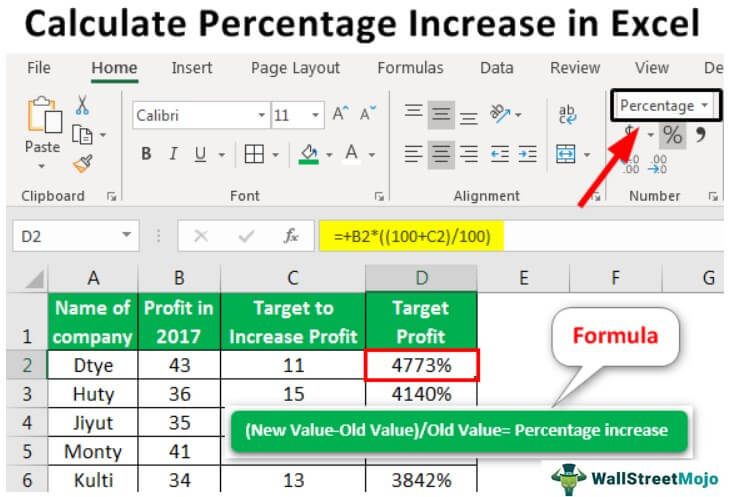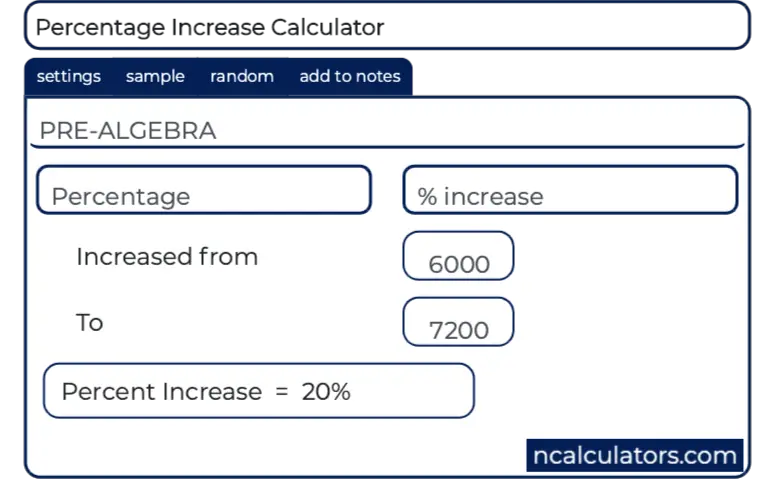If you’re like most people, you want to know if your salary has increased by a certain percentage. However, figuring out how to calculate percentage wage increase can be a daunting task. Luckily, there are some easy steps you can take to help you calculate your percentage wage increase.
Have you ever received a wage increase but weren’t sure if it was enough? Or maybe you’re negotiating a salary increase and want to ensure you’re getting a fair offer. Calculating percentage wage increase is important for determining the value of your income.
To calculate the percentage wage increase, you’ll need two values: your old salary and your new salary. First, subtract your old salary from your new salary to determine the increase. Then, divide the increase by your old salary and multiply by 100. The resulting number is your percentage wage increase!
In summary, calculating percentage wage increase requires subtracting your old salary from your new salary, dividing the increase by your old salary, and multiplying by 100 to get the percentage increase.
How to Calculate Percentage Wage Increase: Explained Step-by-Step
When I received a salary increase last year, I was excited to see what the percentage increase was. However, I wasn’t quite sure how to calculate it. Here’s an example of how to calculate percentage wage increase step-by-step:
Let’s say my old salary was $50,000 and my new salary is $55,000. To calculate the percentage wage increase, you first need to subtract your old salary from your new salary. So:
$55,000 – $50,000 = $5,000
Next, divide the increase by your old salary:
$5,000 / $50,000 = 0.1
Finally, multiply by 100 to get the percentage increase:
0.1 x 100 = 10%
Therefore, my salary increase was 10%.
Factors That Affect Percentage Wage Increase:
There are several factors that can influence your percentage wage increase. Firstly, the industry you work in can make a huge difference. Some industries pay higher wages overall, while others may have a lower base pay but offer lucrative bonuses and commission. Secondly, your level of experience can also affect your percentage wage increase. Typically, employees with more experience are able to negotiate higher wages.
The Role of Performance in Percentage Wage Increase:
Your performance at work can also affect your percentage wage increase. If you are consistently meeting or exceeding your targets, your employer may be more likely to offer you a higher salary increase. On the other hand, if you are underperforming, you may not receive a salary increase at all.
Tips for Negotiating a Salary Increase:
If you think you deserve a higher salary increase, it’s important to negotiate with your employer. Here are some tips for negotiating a salary increase:
- Do your research to find out what other companies in your industry pay employees with your level of experience.
- Be prepared to explain why you deserve a higher salary increase. This can include your performance, your skills and experience, and your contributions to the company.
- Practice your negotiation skills beforehand so you feel confident in the conversation.
- Be open to other compensation options, such as bonuses or additional vacation days.
Question and Answer:
Q: Can I calculate percentage wage increase if I’m self-employed?
A: Yes! You can still calculate your percentage wage increase if you’re self-employed. Simply use your previous year’s income as your old salary and your current year’s income as your new salary.
Q: How often should I expect a wage increase?
A: This varies from company to company. Some companies offer annual wage increases, while others may only offer them every few years. It’s important to check your employment contract or speak to your employer to find out their policy on wage increases.
Q: Can I negotiate a salary increase if I’m a new employee?
A: It may be more difficult to negotiate a salary increase if you’re a new employee, but it’s not impossible. It’s important to have a clear understanding of the company’s policies and expectations before starting negotiations. It’s also important to demonstrate your value and make a strong case for why you deserve a higher salary.
Q: How does inflation affect percentage wage increase?
A: Inflation can have an impact on your percentage wage increase. If the rate of inflation is high, it may reduce the value of your wage increase in real terms. However, many employers will consider inflation when setting wage increases to ensure their employees are keeping up with the cost of living.
Conclusion:
Calculating percentage wage increase is an important skill that can help you determine the value of your income. By following the simple steps outlined in this post, you’ll be able to calculate your percentage wage increase with ease! Remember to consider factors such as your industry, experience, and performance when negotiating wage increases, and always be prepared to make a strong case for why you deserve a higher salary.
Gallery
How To Calculate Percentage Increase In Excel? | Step By Step Guide

Photo Credit by: bing.com / percentage increase
How To Calculate Percentage Increase – Bitesfasr

Photo Credit by: bing.com / increase percentage calculate percent
How To Work Out Percentage Increase On A Calculator – Photos Idea

Photo Credit by: bing.com / percentage calculate
Download Calculate Percent Change Excel | Gantt Chart Excel Template

Photo Credit by: bing.com / calculate excel percent increment gantt
Percentage Increase Calculator

Photo Credit by: bing.com / increase percentage calculator